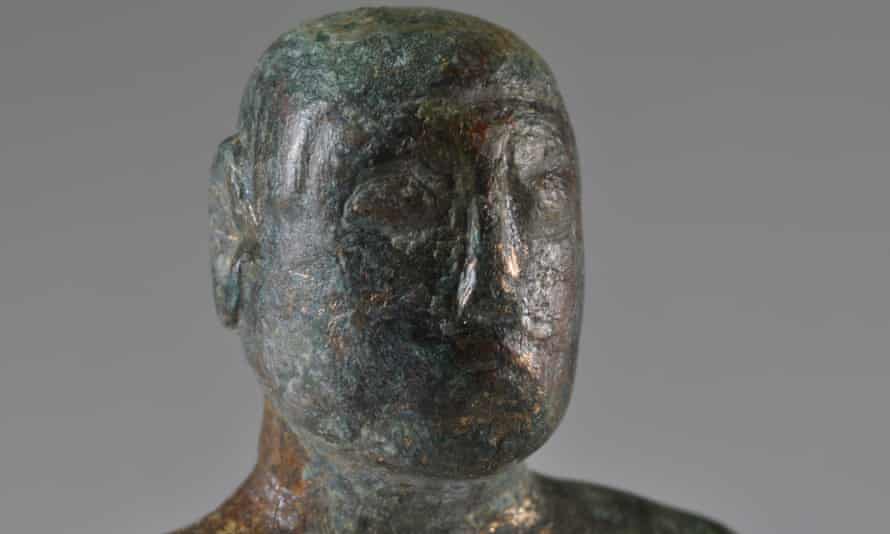The latest skirmish between the royal family and Harry/Meghan may be a good moment to remember that there’s “public” in “public service”. First off, if I were the Windsor family therapist, I’d have something wise and stern to say about engaging in public slanging matches.
However disappointing the loss of royal duties, Harry should not have been snitty with his 94-year-old grandmother (viz. that sign-off, “We can all live a life of service. Service is universal”). At the same time, the passive aggression of the royals and their supporters towards the Sussexes is fast becoming so swollen and gaseous that it won’t be long before it’s visible as a royal-crest-shaped mist.
I keep reading that there’s a big difference between royal public service and Harry and Meghan’s brand of A-list LA-based yolo-philanthropy. Fair enough, but certain commentators may be overestimating the majesty of royal public service, when some of us remain stubbornly underawed by the pious ribbon-snipping and patronising handshaking. Of course, this is too reductive: the royals do far more than that. Nevertheless, some of this “good work” – particularly when it comes to charity – is performed by motivated celebrities.
Is this what the Sussexes were getting at, that they don’t need to be technically royal to do good?
For some, the Sussexes’ philanthropy is undermined by the reportedly multimillion-dollar deals with Netflix and Spotify, the upcoming schmoozefest with Oprah Winfrey, and other lucrative pursuits. (To summarise the carping: Harry and Meghan are definitely helping people – it’s just that the “people” happen to be themselves.)
Even if they are entirely sincere, they may also be misguided. How could “public service” ever be defined by their mega-wealthy do-gooding mates attending awareness-raising retreats on private islands, tweeting shared “messages of hope” afterwards?
Perhaps both the royals and the Sussexes need a wake-up call that it’s not all about them. The most striking recent examples of public service have come from, well, you.
Ordinary people going out of their way for others. (I’ll include Marcus Rashford in this. Just as he transcended his background to become a footballer, he transcended his celebrity to campaign for hungry children.) Then there are the NHS workers and all the others on the frontline. The volunteer vaccinators. Those collecting for food banks outside supermarkets. Others who deliver shopping for shielding neighbours. And so on, without fanfare, day after day.
With such acts, public service is revealed as a democratic, elastic concept that anyone is capable of. It’s not a royals v Sussexes ethical grudge match.
Public service isn’t just for the public, it’s also from the public and by the public, and never more so than right now.
Dolly Parton deserves a statue for not wanting one

Isn’t Dolly Parton the classiest of class acts? Parton, 75, has asked for a bill to be withdrawn that would have led to the erection of a statue of her on the capitol grounds in Nashville, Tennessee. Parton said: “Given all that is going on in the world, I don’t think putting me on a pedestal is appropriate at this time.”
Parton was nominated for the statue for all that she has contributed to Tennessee and the world, not just for music, but also for her myriad charitable and philanthropic works. Latterly, these include founding the Imagination Library (to aid child literacy) and donations to Vanderbilt University that helped develop the Moderna coronavirus vaccine. Then there was her public support for racial justice (a not insignificant stance in country music circles). Parton also turned down the presidential medal of freedom from Donald Trump. Twice. Did I mention that Dolly was classy?
Frankly, I don’t think many people would have been critical had Parton allowed the statue to go ahead. However, the fact that she considered it a bad idea (for now at least) says a lot about her character. Statues have become a vexed topic. (Who deserves one? Who doesn’t? Which should come down? Which should stay up?) But it still feels unusual for someone to turn down one honouring themselves. It positions Parton as the anti-celebrity for our times. Even now some celebrity grifters scrabble and claw for recognition, airtime, cash, holidays in Dubai (any attention or privilege they can get), a bit like gamblers hoarding chips in the tilting casino of the Titanic. Parton has the self-awareness to realise that now is not the time.
It would be foolish to argue that the brains and moxie behind Dollywood doesn’t have an ego, but look how she uses it. By turning down her statue, Parton has shown exactly why she is so worthy of one.
The mullet has stood the test of time. I just hope it doesn’t return

Hug your children close tonight. Disturbing evidence has emerged that the mullet may have predated Chris Waddle and Pat Sharp. A Roman figurine has been unearthed at the National Trust’s Wimpole Estate in Cambridgeshire showing an ancient Briton sporting what could be described as “maximus mulletis”.
This was the second shock archaeological discovery of the week, after excavations on the Isle of Man uncovered gaudy jewellery that my untrained eye concluded probably belonged to Viking Medallion Man.
As scholars of social history know, the mullet (spiky at the top, tendrils down the back) terrorised western democracy, chiefly from the mid 70s to late 80s. The follicular threat appeared to originate in the popular game of football, replacing Kevin Keegan’s “school dinner lady” bubble perm as the Most Unnecessary Hairstyle Ever, quickly spreading across other sports, resulting in The Agassi.
For a tense period in history, the mullet was omnipresent, causing immeasurable distress to blameless women forced to date men who resembled car dashboard gonks. Now the discovery of the Roman-era Waddle suggests the mullet has strong historical precedent and could happen again. Forget about hugging your kids – you’d be better off hiding the hairdressing scissors.
The Link LonkFebruary 21, 2021 at 01:30AM
https://www.theguardian.com/commentisfree/2021/feb/20/harry-meghan-sussexes-royals-public-service
Forget the royals, public service is most often performed by the public - The Guardian
https://news.google.com/search?q=forget&hl=en-US&gl=US&ceid=US:en

No comments:
Post a Comment